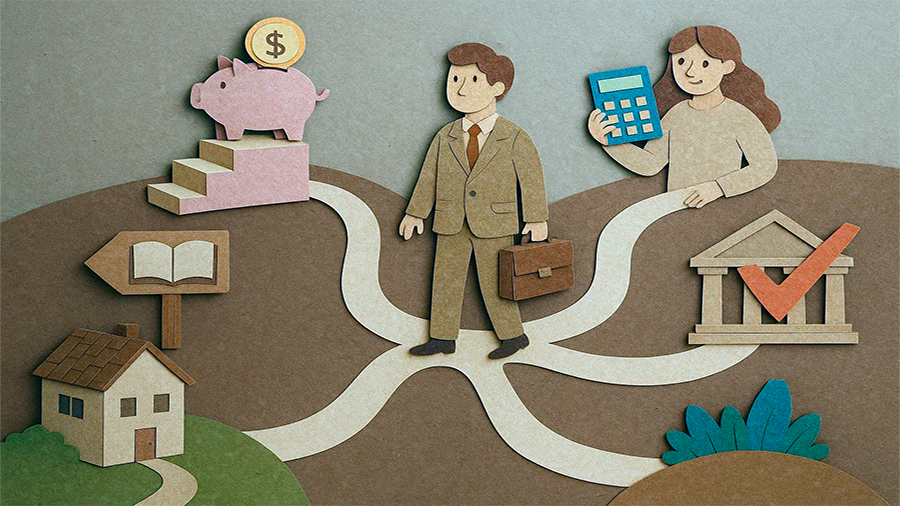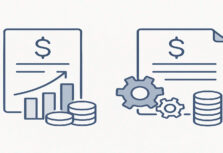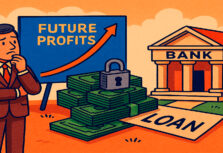December 01, 2025
How Excess Credit Changes Spending Behavior And Erodes Financial Planning

Why Excess Credit Reduces Financial Discipline Among The Population
Credit has become an inseparable part of modern life. From mortgages and car loans to credit cards and buy-now-pay-later schemes, borrowing is easier than ever before. While accessible credit stimulates consumption and supports economic growth, it also carries a hidden danger: it can erode financial discipline. When borrowing becomes habitual rather than exceptional, individuals adjust their lifestyles to permanent debt. This shift creates a culture where financial planning takes a back seat, and long-term stability is sacrificed for short-term convenience. Understanding how excess credit influences behavior is essential to recognizing its impact on both households and broader economies.
The Growth Of Easy Credit
In the last few decades, financial institutions and fintech companies have expanded access to loans dramatically. Digital platforms approve credit in minutes, and marketing campaigns normalize constant borrowing. Credit cards, overdraft facilities, and instant online loans blur the line between income and debt. While such accessibility widens financial inclusion, it also reduces the natural friction that once made borrowing a carefully considered decision. Instead of being seen as a serious commitment, credit is now treated casually, contributing to impulsive financial behaviors and growing dependence on debt.
Credit As A Consumer Culture Driver
Credit fuels consumption, allowing individuals to purchase goods and services far beyond their immediate means. This cycle creates the illusion of prosperity but also trains people to rely on borrowing as a permanent extension of income rather than a temporary solution.
How Excess Credit Undermines Discipline
Financial discipline is built on budgeting, saving, and prioritizing needs over wants. Excess credit disrupts this foundation by offering instant solutions to every shortfall or desire. Instead of saving for future expenses, individuals swipe a card or tap an app. Over time, this behavior erodes the habit of planning and teaches households to normalize debt repayments as a fixed part of monthly expenses. The result is a shift from proactive financial management to reactive survival, where the focus is on managing loans rather than building wealth.
The Illusion Of Affordability
Credit often creates a false sense of affordability. A household may believe it can afford a car or luxury goods simply because financing options make monthly payments look manageable. In reality, the total cost of ownership—including interest and fees—erodes financial health. This misperception weakens discipline by making borrowing appear harmless.

Comparing Responsible And Excessive Credit Use
Not all borrowing is harmful. Credit can serve productive purposes when used strategically. The problem arises when loans are taken without consideration for long-term consequences. The following table contrasts responsible versus excessive credit use:
| Aspect | Responsible Credit Use | Excessive Credit Use |
|---|---|---|
| Purpose | Investment in education, housing, or productive assets | Impulse purchases, lifestyle inflation |
| Repayment Capacity | Aligned with income and budget planning | Exceeds stable income, reliant on refinancing |
| Long-Term Impact | Improves wealth-building potential | Leads to chronic debt dependency |
| Behavioral Effect | Encourages cautious financial planning | Reinforces careless spending habits |
Consequences Of Excessive Credit
When credit becomes a substitute for income, individuals lose sight of financial priorities. Savings rates decline, emergency funds disappear, and wealth accumulation stagnates. Eventually, the population develops systemic debt reliance that can weaken entire economies.
Psychological And Behavioral Effects
Excess credit does not only affect finances—it shapes psychology. Easy access to loans reduces the mental barrier against spending, turning borrowing into a routine. People become less sensitive to the concept of debt and more tolerant of living permanently in the red. This normalization of debt alters societal attitudes toward responsibility and financial prudence, creating generations more comfortable with borrowing than saving.
The Debt Spiral Phenomenon
Excess borrowing often leads to a spiral where existing loans are refinanced or repaid with new credit. This creates a cycle of dependency that erodes self-control. Over time, individuals prioritize debt servicing above essential needs, leading to financial stress and reduced quality of life.
Economic Implications Of Widespread Over-Borrowing
When large sections of the population adopt careless borrowing habits, the effects spill over into the economy. Household debt burdens reduce disposable income, weakening long-term consumption. Banks and lenders face higher default risks, leading to tighter credit policies or increased interest rates. Governments may step in with regulations or debt relief programmes, but these interventions often treat symptoms rather than causes. The larger danger is that excessive borrowing reduces the overall resilience of the economy, making societies more vulnerable to recessions and financial crises.
Link Between Household Debt And Economic Shocks
Studies consistently show that economies with high household debt levels suffer deeper recessions when crises hit. Excess credit amplifies downturns by leaving households unable to cut spending or absorb shocks. Instead of acting as stabilizers, households become risk factors that accelerate instability.

Key Risks Created By Excess Credit
The risks of undisciplined credit use extend beyond individual households. They affect lenders, governments, and entire economies. The table below highlights the main risks associated with excess credit:
| Risk Category | Description | Consequences |
|---|---|---|
| Personal Financial Stress | Individuals overwhelmed by multiple loan repayments | Declining living standards, mental health strain |
| Systemic Debt Reliance | Population dependent on borrowing for consumption | Reduced savings, weaker economic resilience |
| Default Risk | Rising loan defaults due to overextension | Banking sector instability, tighter credit supply |
| Economic Volatility | Debt amplifies recessions and financial crises | Deeper downturns, longer recovery periods |
The Role Of Financial Institutions
Lenders play a significant role in shaping consumer behavior. Aggressive marketing of credit products without sufficient financial education exacerbates undisciplined borrowing. Institutions that prioritize long-term sustainability over short-term profit can help mitigate risks by implementing responsible lending standards.
Pathways To Restoring Financial Discipline
Reducing the negative effects of excess credit requires a combination of individual responsibility, institutional reforms, and public policy. At the household level, individuals must prioritize savings, adopt strict budgeting, and use credit only for productive purposes. Financial institutions should implement affordability checks and promote financial education. Governments can regulate predatory lending practices and encourage literacy programmes that teach citizens the true cost of credit. Together, these measures rebuild the culture of responsibility that excess credit undermines.
Promoting Financial Literacy
Education is the most effective long-term solution. By teaching households how interest compounds, how debt repayment affects budgets, and how to distinguish between productive and destructive borrowing, societies can restore healthier financial habits.
The Conclusion
Excess credit reshapes the financial behavior of entire populations. While loans provide short-term convenience and economic stimulus, their overuse undermines discipline, encourages careless spending, and creates long-term vulnerability. By comparing responsible and excessive borrowing, analyzing risks, and promoting strategies for healthier financial behavior, it becomes clear that accessible credit must be balanced with education and responsibility. Without these safeguards, societies risk normalizing debt as a way of life, weakening both households and the broader economy. Financial discipline is not lost overnight, but once eroded by easy credit, rebuilding it requires conscious effort at every level—from individuals to governments.






